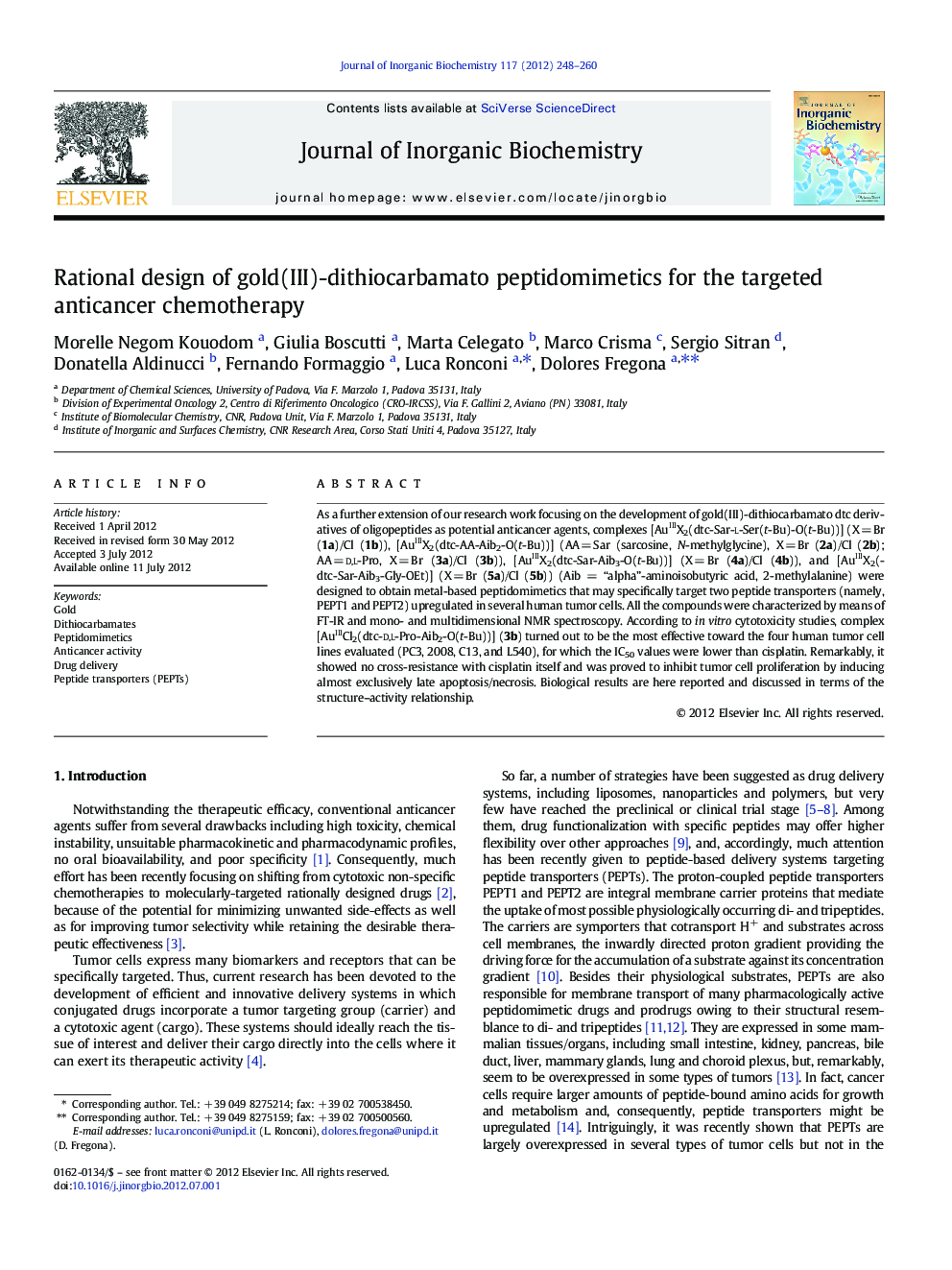| Article ID | Journal | Published Year | Pages | File Type |
|---|---|---|---|---|
| 1317726 | Journal of Inorganic Biochemistry | 2012 | 13 Pages |
As a further extension of our research work focusing on the development of gold(III)-dithiocarbamato dtc derivatives of oligopeptides as potential anticancer agents, complexes [AuIIIX2(dtc-Sar-l-Ser(t-Bu)-O(t-Bu))] (X = Br (1a)/Cl (1b)), [AuIIIX2(dtc-AA-Aib2-O(t-Bu))] (AA = Sar (sarcosine, N-methylglycine), X = Br (2a)/Cl (2b); AA = d,l-Pro, X = Br (3a)/Cl (3b)), [AuIIIX2(dtc-Sar-Aib3-O(t-Bu))] (X = Br (4a)/Cl (4b)), and [AuIIIX2(dtc-Sar-Aib3-Gly-OEt)] (X = Br (5a)/Cl (5b)) (Aib = “alpha”-aminoisobutyric acid, 2-methylalanine) were designed to obtain metal-based peptidomimetics that may specifically target two peptide transporters (namely, PEPT1 and PEPT2) upregulated in several human tumor cells. All the compounds were characterized by means of FT-IR and mono- and multidimensional NMR spectroscopy. According to in vitro cytotoxicity studies, complex [AuIIICl2(dtc-d,l-Pro-Aib2-O(t-Bu))] (3b) turned out to be the most effective toward the four human tumor cell lines evaluated (PC3, 2008, C13, and L540), for which the IC50 values were lower than cisplatin. Remarkably, it showed no cross-resistance with cisplatin itself and was proved to inhibit tumor cell proliferation by inducing almost exclusively late apoptosis/necrosis. Biological results are here reported and discussed in terms of the structure–activity relationship.
Graphical abstractGold(III)-dithiocarbamato peptidomimetics can be recognized and transported by peptide transporters (PEPTs) overexpressed in cancer cells and, once delivered inside the target tumor site, can exert their anticancer activity without affecting healthy tissues, thus acting as “Trojan horses”.Figure optionsDownload full-size imageDownload as PowerPoint slide
